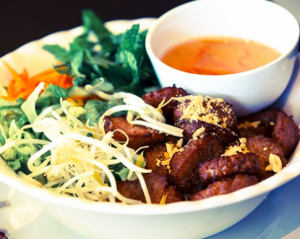(Doesn’t say if the study has been published in a peer-reviewed journal.)
New Zealanders want brightly coloured warning labels on fresh chicken to warn them of the risks of the country’s “number one food safety problem”, new research suggests.
 A University of Otago study found only 15 per cent of consumers were aware that 60 to 90 per cent of fresh chicken meat for sale in New Zealand is contaminated with campylobacter.
A University of Otago study found only 15 per cent of consumers were aware that 60 to 90 per cent of fresh chicken meat for sale in New Zealand is contaminated with campylobacter.
“This study has identified some clear gaps in campylobacteriosis prevention in New Zealand,” University of Otago infectious diseases researcher Professor Michael Baker said.
“Fresh chicken is heavily contaminated with campylobacter and causes an estimated 30,000 New Zealanders to get sick each year. “
Fresh chicken was also spreading antibiotic resistant bacteria and was “New Zealand’s number one food safety problem”, Baker said.
Speaking on Mike Hosking Breakfast today, he said people were still getting sick as a result of not carrying out best practice when preparing fresh chicken – including not adequately cleaning bench surfaces or sinks that have come in contact with it.
Baker said a label would need good information to help a consumer, but would need to be tested.
He said labels to should read something like: “This food should be treated with care.”
The study was based on interviews with 401 shoppers over 16 who were recruited outside 12 supermarkets and six butcheries in the Wellington Region
“New Zealand has one of the highest rates of campylobacteriosis in the world and at least half of cases can be attributed to contaminated chicken,” Philip Allan, a medical student and researcher at the Department of Public Health, University of Otago Wellington (UOW), said.
“Our study showed that many consumers are not aware of the risks, and that retailers should do much more to inform shoppers.”
The study also assessed the quality of current chicken labelling in supermarkets and butcheries and identified major deficiencies in the safety information provided to consumers.
Butchery labels in particular were lacking in chicken preparation information.
More than half wanted the levels of campylobacter contamination reported, the study found.
“Most participants thought a large, brightly coloured warning label containing safety information would be the most effective for communicating safe chicken preparation information.”
The study’s researchers said the most effective way to reduce campylobacteriosis rates is for Ministry for Primary Industries to mandate lower contamination levels of fresh poultry.
“This measure has been highly effective in the past, halving the rate of campylobacteriosis in New Zealand when implemented in 2007.
“While improved labelling is important, it is no substitute for cleaning up our poultry,” Baker said.










